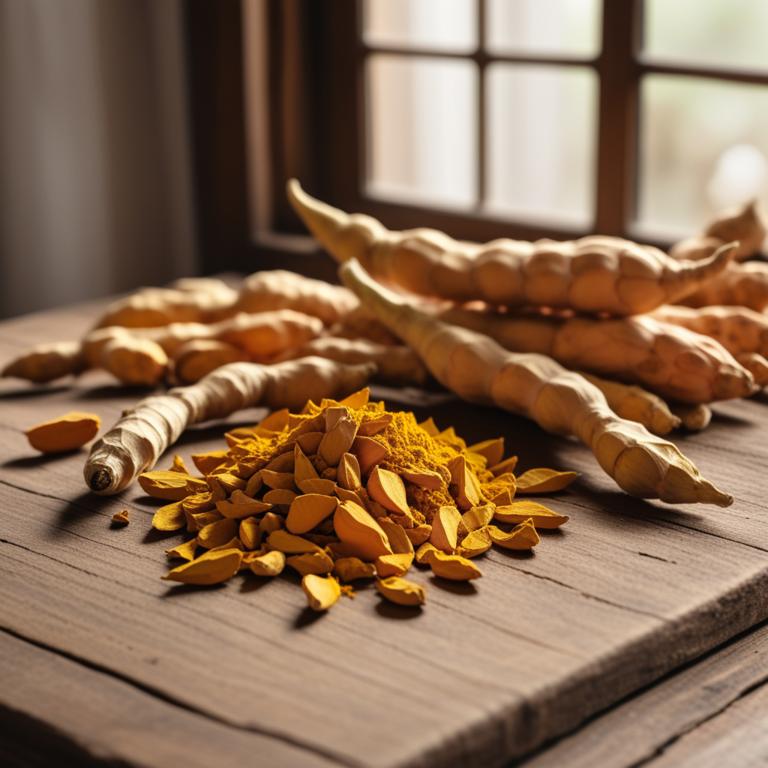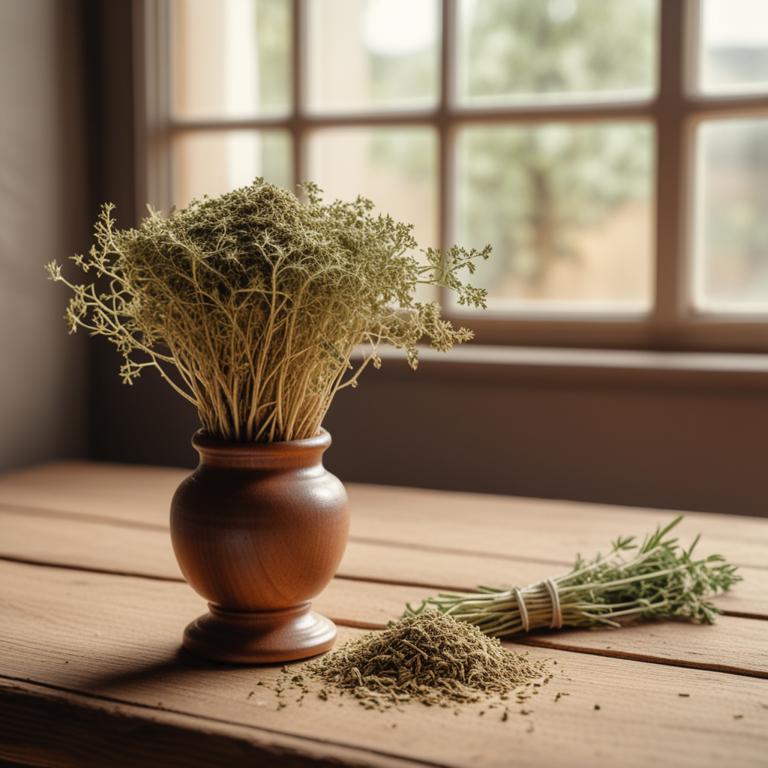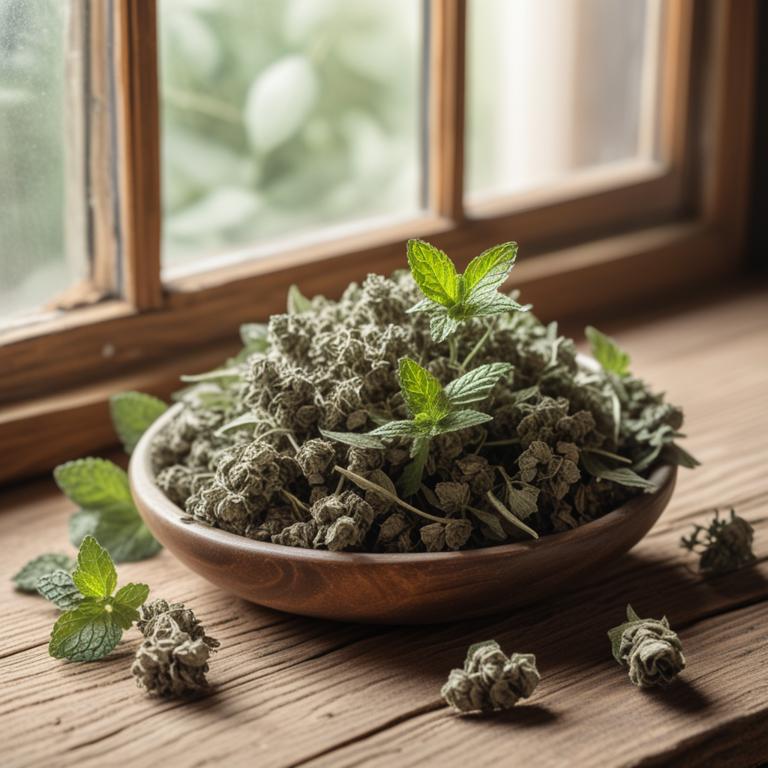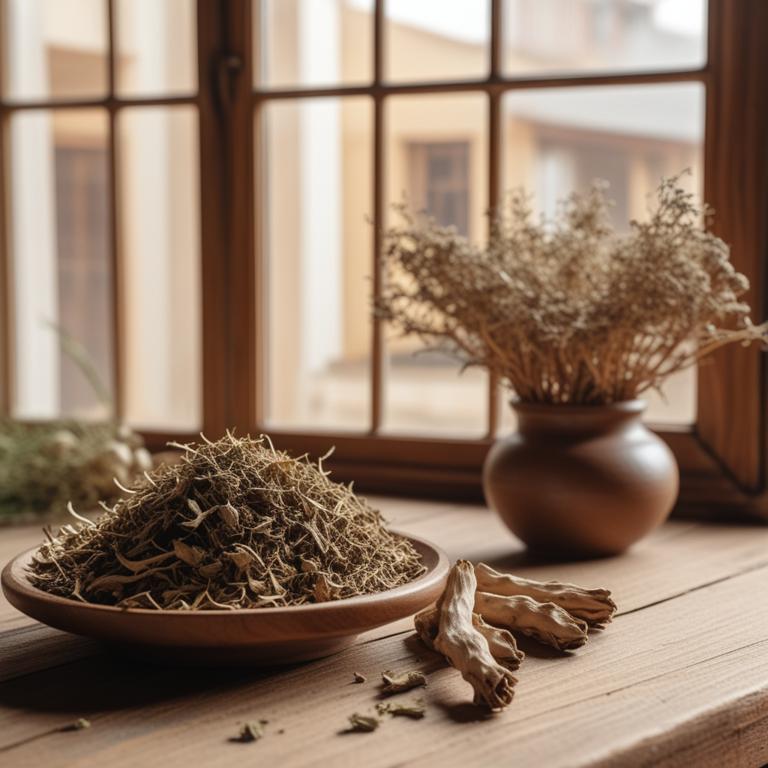Updated: Dec 1, 2024
Peptic Ulcers: Causes, Medicinal Herbs, and Herbal Preparations for Pain Relief
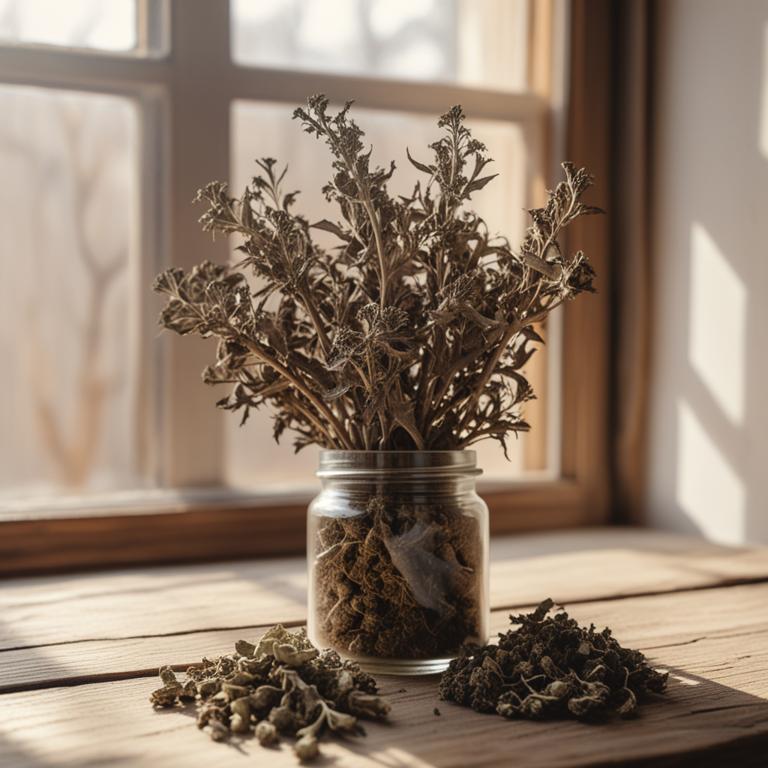
Peptic ulcers are painful sores that develop on the inside lining of your stomach and the upper part of your small intestine.
They can make eating and drinking uncomfortable, and in severe cases, life-threatening. Peptic ulcers are often caused by a combination of factors, including long-term use of nonsteroidal anti-inflammatory drugs (NSAIDs), such as ibuprofen and aspirin, and Helicobacter pylori bacteria. Stress, smoking, and a family history of ulcers can also contribute to their development. Herbal remedies have been used for centuries to help heal peptic ulcers. One of the most effective herbs for this purpose is aloe vera, which has anti-inflammatory properties that can help reduce inflammation and promote healing. Slippery elm is another herb that has been traditionally used to soothe and protect the mucous membranes in the digestive tract.
Licorice root has anti-inflammatory and antimicrobial properties that can help reduce inflammation and kill bacteria that can cause ulcers. To use these herbs, you can make teas by steeping dried leaves or roots in hot water. You can also take capsules or tinctures that contain the dried herbs. Aloe vera juice can be consumed directly, or added to smoothies and other beverages. Slippery elm can be made into a tea or a capsule. Licorice root can be consumed as a tea, capsule, or tincture.
It's essential to consult with a healthcare professional before using any herbal remedies, especially if you're already taking medications or have underlying health conditions.
Table of Contents
What leads to the formation of peptic ulcers?
The main causes of peptic ulcers are a combination of factors that can irritate the lining of the stomach and small intestine.
Firstly, the bacterium H. pylori is a major contributor to peptic ulcers. This bacterium infects the stomach lining and causes inflammation, which can lead to ulcers. If left untreated, H. pylori infection can cause recurring peptic ulcers. Another significant cause is the use of nonsteroidal anti-inflammatory drugs (NSAIDs) such as ibuprofen and naproxen. These medications can reduce the production of stomach acid, but they can also irritate the stomach lining, leading to ulcers. Long-term use of NSAIDs increases the risk of developing peptic ulcers.
Aspirin, another pain reliever, can also cause peptic ulcers, especially when taken in high doses or for extended periods. Aspirin can irritate the stomach lining and reduce the production of stomach acid, making it more susceptible to ulcers. Excessive alcohol consumption is another risk factor for peptic ulcers. Alcohol can irritate the stomach lining, reduce stomach acid production, and increase the risk of bleeding in the stomach. Genetic predisposition can also play a role in the development of peptic ulcers. Some people may be more susceptible to peptic ulcers due to their genetic makeup, which can affect the production of stomach acid and the healing process of the stomach lining. Lastly, stress can contribute to peptic ulcers by increasing the production of stomach acid and reducing the production of mucus that protects the stomach lining.
When we're under stress, our body's natural response is to produce more stomach acid, which can irritate the stomach lining and increase the risk of ulcers.
What benefits can herbs offer in the treatment of peptic ulcers?
Using herbs to treat peptic ulcers can be really helpful.
These natural remedies can help reduce inflammation and pain in the stomach, which is a major symptom of peptic ulcers. One of the main benefits is that they can help heal the ulcer itself, rather than just masking the symptoms with medication.
This can lead to faster recovery and fewer complications. Additionally, herbs can help soothe and calm the digestive system, which can reduce stress and discomfort. Some herbs may also have antibacterial properties, which can help prevent the infection that causes peptic ulcers in the first place.
By addressing the root cause of the problem, herbs can help prevent future ulcers from forming.
Which medicinal herbs have proven benefits for peptic ulcers?

Peptic ulcers can be painful and uncomfortable, but herbs may help.
Ginger, or Zingiber officinale, has anti-inflammatory properties that can reduce swelling and ease pain in the stomach. Licorice root, or Glycyrrhiza glabra, has compounds that help heal stomach wounds and reduce inflammation.
Turmeric, or Curcuma longa, contains curcumin, a powerful antioxidant that fights inflammation and promotes healing. Fennel, or Foeniculum vulgare, has oil that helps relax the muscles in the stomach and reduce spasms. Aloe vera has anti-inflammatory properties that can soothe and calm the stomach lining, reducing inflammation and promoting healing.
These herbs may help manage symptoms and promote healing in people with peptic ulcers.
What are the herbal treatments commonly used for peptic ulcers?
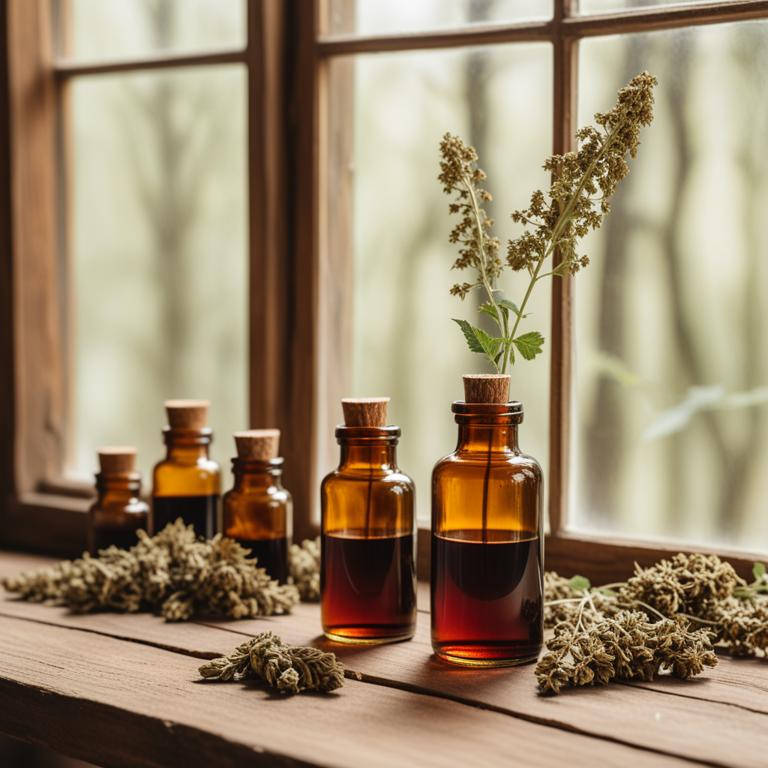
When it comes to treating peptic ulcers, herbal preparations can be a good option.
A decoction is a liquid extract made by simmering herbs in water, which can help ease stomach pain and reduce inflammation. This is because the heat from the water brings out the medicinal properties of the herbs, making them more effective. A tincture, on the other hand, is a concentrated liquid extract made by soaking herbs in a solvent like alcohol or glycerin. This method helps to preserve the herbs' medicinal properties and can be easily absorbed by the body. Tinctures can be taken orally or used topically to soothe stomach pain. Herbal capsules are another popular way to consume herbal preparations. They contain dried and powdered herbs that have been filled into a gelatin capsule.
This method is great for people who have trouble swallowing liquids or prefer a more convenient way of taking their herbs. Capsules can help to reduce stomach inflammation and promote healing. An herbal infusion is similar to a decoction, but it's made by steeping herbs in hot water for a shorter time. This method helps to preserve the delicate properties of the herbs and can be gentler on the stomach. Infusions can help to calm stomach pain and promote digestion. Finally, a salve is a topical cream or ointment made from herbs that can be applied directly to the stomach area. This method can help to soothe and calm the stomach lining, reducing inflammation and promoting healing.
Salves can be especially helpful for people who experience stomach pain or discomfort after eating.
Additional Resources:
Should certain herbs be avoided if you have peptic ulcers?
If you have peptic ulcers, there are certain herbs you should be careful about using.
Cassia auriculata, also known as the gold-flowered cassia, can irritate the stomach lining and make your peptic ulcers worse. Its active compounds can cause inflammation and damage to the stomach lining, which is already compromised by the ulcers. Capsicum annuum, or the common chili pepper, contains capsaicin, a chemical that can irritate the stomach and make acid production worse.
This can make your peptic ulcers more painful and uncomfortable. Piper nigrum, or black pepper, may also exacerbate the problem, as its piperine content can irritate the stomach and worsen acid production. Rosmarinus officinalis, or rosemary, has been known to irritate the stomach and cause heartburn, which can be painful for people with peptic ulcers. Cinchona officinalis, or the Peruvian bark, contains quinine, a compound that can irritate the stomach lining and make peptic ulcers worse.
Using these herbs can cause more discomfort and make it harder to manage your peptic ulcers.
FAQ
Are there any specific herbs that can prevent peptic ulcers?
Ginger has been shown to help with peptic ulcers.
It has anti-inflammatory properties that can reduce stomach acid and soothe the digestive tract. Licorice root extract may also be beneficial as it protects the stomach lining and can prevent ulcers from forming.
These herbs may help alleviate peptic ulcer symptoms.
Is it safe to use herbal remedies for peptic ulcers during pregnancy?
Using herbal remedies for peptic ulcers during pregnancy is not recommended.
Some herbs like licorice root, ginger, and slippery elm may help with symptoms, but their safety during pregnancy isn't well understood. These remedies can interact with medications or worsen the condition.
It's best to talk to a doctor before trying any new treatments.
Are there any herbs that can reduce the frequency of peptic ulcers?
Some herbs may help reduce peptic ulcers by soothing the stomach lining.
Licorice root, for example, has anti-inflammatory properties that can calm digestive issues. Ginger is another herb that may help ease peptic ulcers by reducing inflammation and promoting digestion.
These herbs might provide relief for people with peptic ulcers.
Can i combine different herbal remedies for peptic ulcers?
You can combine different herbal remedies for peptic ulcers, but be cautious with amounts and interactions.
For example, you might mix aloe vera and licorice root to soothe and protect the stomach lining, while also adding slippery elm to help heal damaged tissues.
However, start with small doses and monitor your body's response.
Related Articles
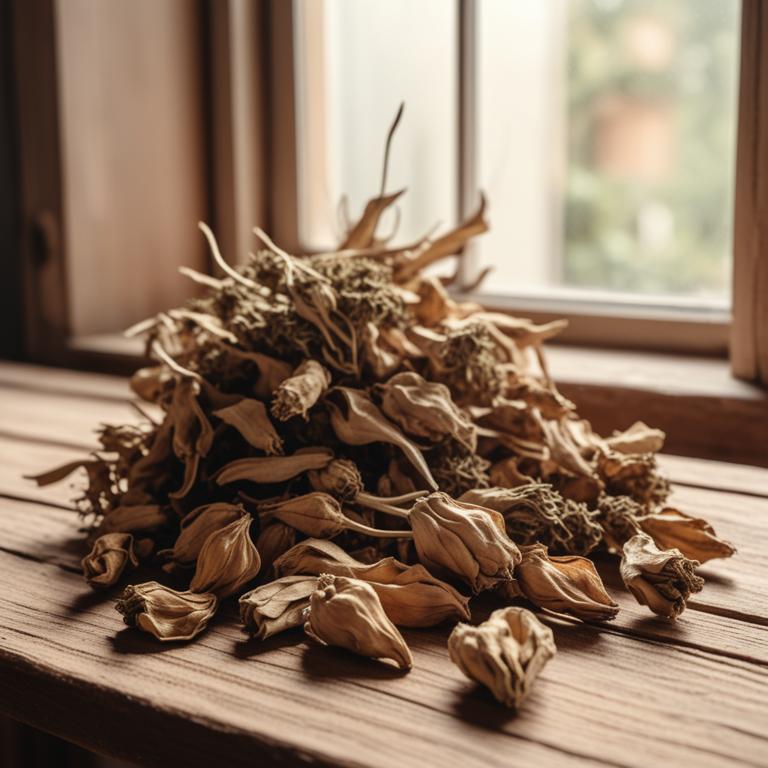
Irritable Bowel Syndrome: Understanding the Causes and Using Medicinal Herbs for Relief
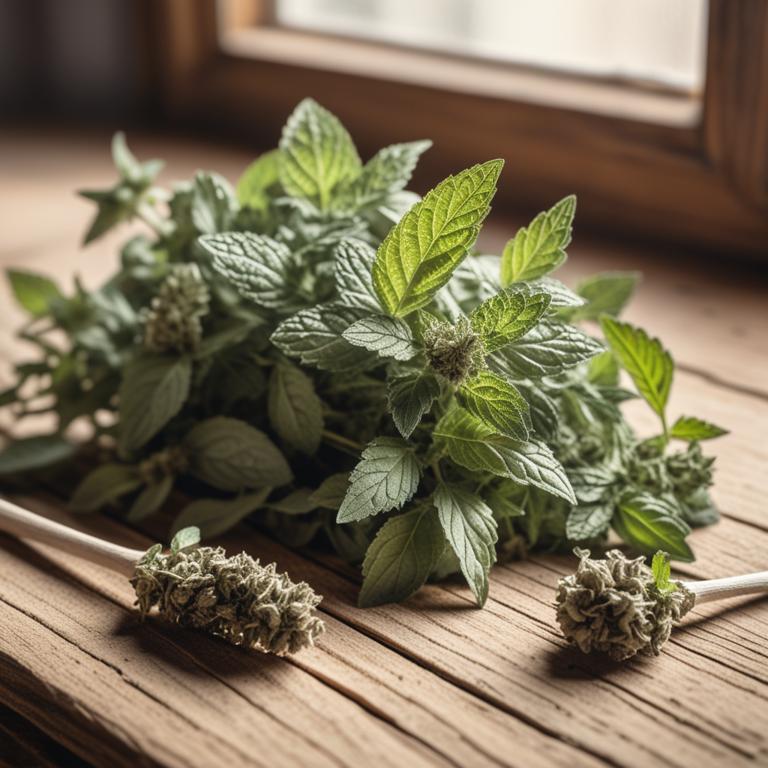
Throat Pain: Causes, Treatments, and Medicinal Herbal Preparations
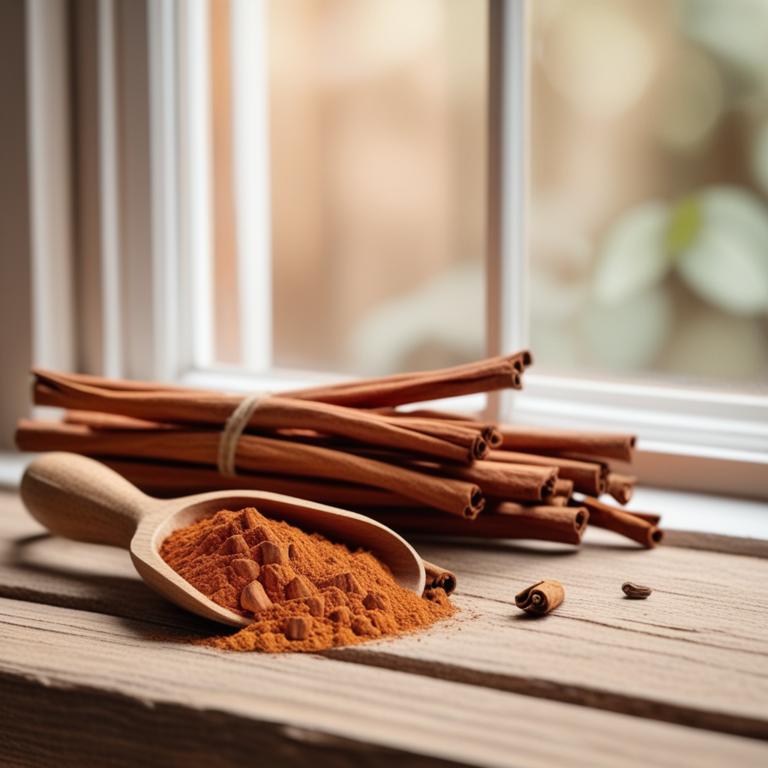
Sour Taste in Mouth: A Guide to Medicinal Herbs and Preparations
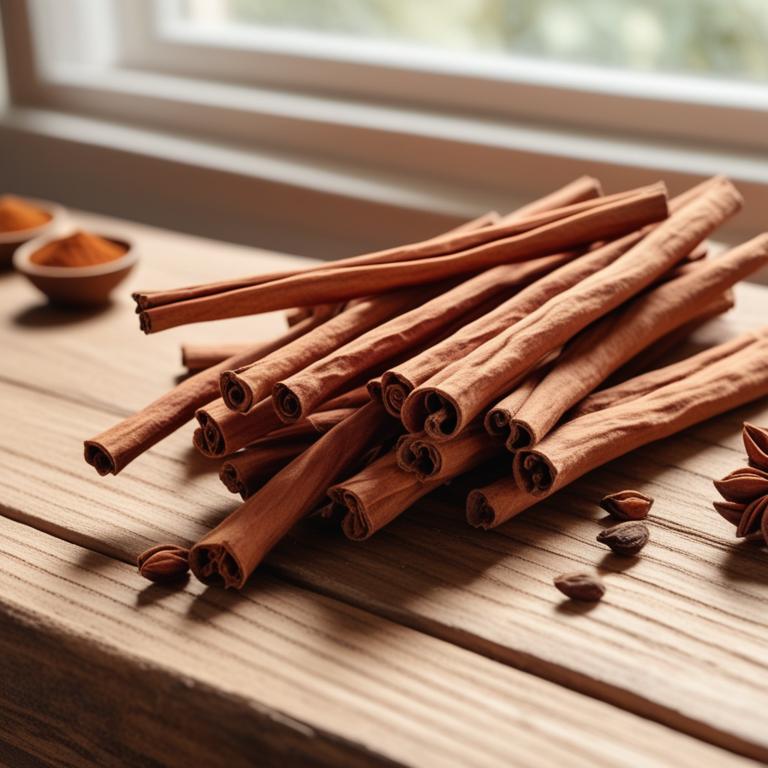
Overcoming Loss of Appetite: Causes, Medicinal Herbs, and Herbal Remedies
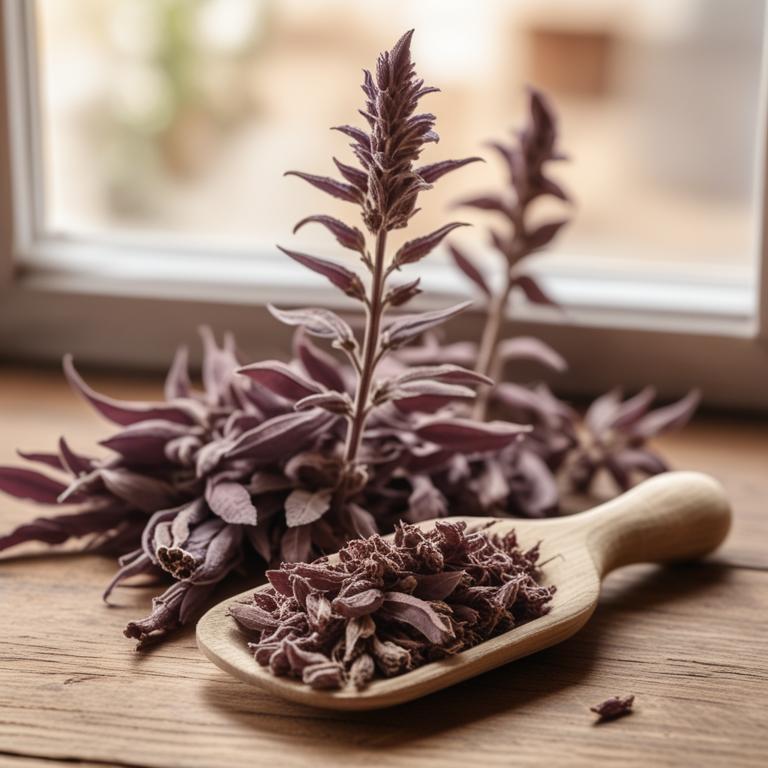
Overeating: The Causes and Medicinal Herbs for a Healthier You
